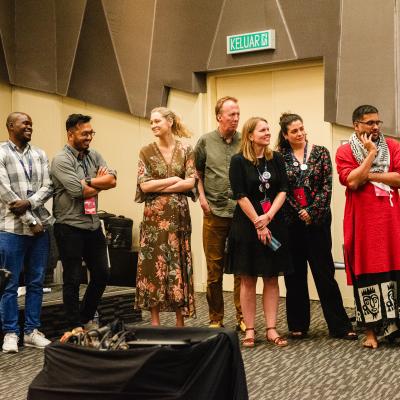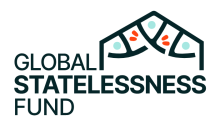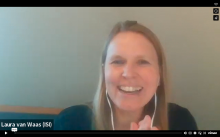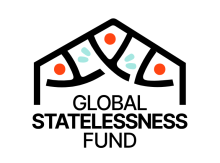“This initiative is more than [a] financial mechanism – it is a lifeline for countless individuals who have been denied their most basic rights and a testament to collective commitment of all those who refuse to let statelessness remain invisible.”
Deepti Gurung, Citizenship Affected People’s Network, Nepal
KEY FACTS ABOUT THE GLOBAL STATELESSNESS FUND
- The Global Statelessness Fund (GSF) aims to catalyse citizenship rights through flexible funding and tailored support for initiatives led by people impacted by statelessness and denial of equal nationality rights.
- The GSF is founded on the belief that responses to statelessness should be led by those with lived experience to address the real needs of affected communities.
- The GSF was established to provide a platform for increasing donor awareness and prioritisation of statelessness, and to offer a mechanism for channelling resourcing directly to where it can have the greatest impact.
- Modelling the shift in power that it seeks to support within the wider statelessness ecosystem, the GSF is co-designed and governed by a Steering Group composed of leaders impacted by statelessness or discriminatory nationality rights alongside civil society and donor allies.
- The GSF funds groups and activists who are impacted by statelessness, provides accompaniment and capacity development support, and collaborates with grantee partners and other movements to implement advocacy initiatives that strengthen partnerships in tackling statelessness and discriminatory nationality laws.
WHAT IS THE GLOBAL STATELESSNESS FUND?
The Global Statelessness Fund (GSF/ the Fund) is an initiative co-created by leaders and activists impacted by statelessness, civil society organisations and donor allies that supports groups and activists impacted by statelessness and discriminatory nationality laws, through financial and technical support and capacity strengthening. The Fund provides multi-year, flexible funding directly to organisations and informal groups, prioritising those led by impacted people. Their trust-based and flexible model ensures accountability without creating additional burdens, allowing impacted person-led groups to pursue their own agendas for change. Some support also goes to key allies and “anchor” organisations that work closely with affected communities. The Fund prioritises support for groups in hard-to-reach contexts and those lacking formal registration or financial infrastructure. These groups, often ineligible for traditional grants, carry out vital work in their communities and are key to transforming systems that affect stateless people and those denied equal nationality rights worldwide.
Beyond funding, the GSF provides grantee partners with networking, training, and participation opportunities that are shaped by their priorities and interests through a bespoke Accompaniment Programme, supporting them to achieve the change they seek by strengthening their sustainability, resilience and effectiveness.
The Fund is driven by a Steering Group, composed of leaders impacted by statelessness, NGOs, donors, and advisors who explore and implement strategies to amplify the voices of those with lived experience of statelessness and strengthen donor commitments to resource their work. Grants are administered through the Fund’s fiscal host, Open Collective Europe – a fundraising, legal status, and money management platform for communities and grassroots groups.
In late 2024, the Fund’s Steering Group selected the inaugural cohort of grantee partners, supporting a cross-section of the diverse geographic and thematic initiatives in the statelessness field. Employing a participatory grant-making model, a Peer Review Committee was drawn from amongst the initial grantee partners to work with the Steering Group to develop the criteria and process for the selection of the second cohort in 2025. While the Fund does not accept open applications, it welcomes hearing from those working to end statelessness and discrimination in nationality laws.
WHY WAS THE GLOBAL STATELESSNESS FUND ESTABLISHED?
Hundreds of stateless activists and groups led by people impacted by statelessness have self-organised to serve their communities around the world, while also fighting to place their issues on national agendas and to take them to the international community. However, stateless-led groups have rarely been included or lead in policy and decision making spaces; and their relationships with NGOs, donors and the UN are unequal. A major contributing factor to the power imbalances in the field is the fact that, despite the key role they play in driving change, groups led by impacted people have insufficient resources, independence, agency and connections. Statelessness has long been “an overlooked and underfunded issue” in the philanthropic sector. Donor knowledge, commitment and funding levels to statelessness are low; while the structural barriers to funding impacted-person-led groups are especially high.
The Fund developed out of a working group of the Global Movement Against Statelessness, whose 2023 field needs survey demonstrated how difficult it was for groups working on statelessness to access funding – especially stateless-led groups, and informal or emerging networks and coalitions. The idea for the Global Statelessness Fund emerged to address the need for a platform that could increase donor awareness and prioritisation of statelessness as well as channel resources directly to where it has the greatest impact. The GSF recognises that groups led by those directly impacted by statelessness are the best placed to understand and represent the needs of their communities, and that the growing problem of statelessness can be most effectively addressed by bringing increased resources directly to people impacted by statelessness and the organisations they lead – supporting their efforts to advocate, organise, educate, and mobilize to advance the rights of stateless individuals and communities.
From day one, the work to design and develop the Fund was grounded in co-creation, by impacted activists, civil society groups and donor allies – each contributing their respective experience, expertise and networks to realise a common vision. As a “movement-led” intermediary, the GSF has adopted participatory grant-making methods that place decision-making power in the hands of those affected by the issue. By its launch in January 2025, the Fund had raised $5.1 million of a stated $6 million target for the first three-year phase and made multi-year, unrestricted grants totalling $1.7 million to 25 organisations operating in 16 countries. The Fund continues to actively fundraise to support its partners’ vital work in the years to come.
CHALLENGES TO ACCESSING STATELESSNESS FUNDING
There are many barriers that organisations face when trying to access funding for statelessness work. Three of the most common challenges highlighted by organisations that work on statelessness are the lack of prioritisation of the issue by donors, the lack of fundraising capacity within the organisation itself, and the lack of knowledge among donors on the issue. Solving statelessness requires structural change, but as a cross-cutting and intersectional issue it often falls between the cracks of donor priorities. Organisations working on statelessness issues often find that their work intersects with issues like human rights, migration, climate justice, gender equality and democracy. However, grants awarded along these thematic lines via traditional project-based funding models can be overly restrictive to statelessness organisations, missing the importance of statelessness as a standalone priority issue and hindering the long-term impact of their work.
Half of the respondents from the 2023 Field Needs Survey were operating within small budgets of less than $50,000 annually, rising to two thirds when looking only at organisations with lived experience leadership, showing how financial insecurity disproportionately affects impacted person-led organisations. These smaller organisations are mainly reliant on sub-granting from larger NGOs as well as community funding. This lack of long-term financial support threatens the ability to retain or hire paid personnel, contributing to an unsustainable reliance on volunteers, and depriving these organisations of the opportunity to innovate and build on their existing programmes. The nature of insecure funding means that organisations are often forced to halt operations when funding runs out until a time that they are able to allocate more resources to their activities. The pause in activities can be detrimental to the efficacy of the project work, especially in situations where organisations are working directly with communities.
The survey showed that for these smaller organisations, only 11% of their income is from large philanthropic trusts, a number that goes down to 7% for organisations that are not legally registered. Organisations raised frustrations around very strict grant requirements including onerous applications and reporting needs, the lack of feedback on failed applications, and general ineligibility due to a (too small) organisational budget or lack of registration/bank account. Organisations working on statelessness are often unable to meet changing day to day challenges on the ground let alone complete complex applications and reporting requirements for the foundations that could provide the funding to help them grow sustainably. A trust-based model of philanthropy that leverages peer validation, community reputation, and flexible reporting is necessary to meet these organisations where they are: providing flexible, long-term support without the additional administrative burdens that can create insurmountable barriers for impact-led organisations working directly with affected people.
KEY ACTIVITIES AND HIGHLIGHTS OF THE FUND
The Global Statelessness Fund launch event in January 2025 provided the first platform where the inaugural grantee partners were able to share the impactful work they are doing around the globe directly to the donors and backers who provided the seed funding to enable the transformation of the GSF from vision to reality. Later in 2025, two Townhall events were an opportunity for interested organisations to learn more about the Fund and ask questions.
The Fund Accompaniment Programme is a bespoke programme through which all impacted-person-led grantee partners will have access to guidance, support, resources, and peer learning spaces to help with their professional and organisational development needs, in addition to the unrestricted funding they receive. The Programme aims to encourage organisations to think big and to think strategically, securing their longer-term resilience while enhancing their ability to be responsive to new needs. Through regular check-ins with the Accompaniment Team, grantees identify their specific needs in terms of individual leadership or organisational support. On the basis of these check-ins, the Team is able to provide individualised support and professional development opportunities in accordance with the priorities and needs of the grantee partners.
GSF closely collaborates with the Global Movement Against Statelessness (GMAS). These two initiatives embody a shared commitment to shifting power, building intersectional alliances, increasing donor awareness and commitments, and transforming the statelessness field into a more effective, cohesive, resilient, and strategic one that truly centres and is led by people impacted by statelessness and denial of equal nationality rights.
HOW TO GET INVOLVED WITH THE GLOBAL STATELESSNESS FUND
Groups working on statelessness: although the Fund does not have an open application process, it is interested to learn more about what individuals and groups are doing globally to combat statelessness and advance citizenship rights. If you are working on these issues, you can highlight your work via the Initiative Information Form.
Donors: the Fund continues to actively fundraise to sustainably support new and existing Grantee Partners’ work into the future, and encourages interested donors to contact the Fund to learn more about how their contribution can make a difference.
Individuals and other organisations are encouraged to keep up with the work of the Fund and its Grantee Partners via the News and Spotlights sections of the Fund website as well as the Fund Mailing List. The Fund is open to any donations, big or small, from both institutions and individuals, who can donate directly via the Open Collective Europe platform.
You can show support to the Fund by subscribing to its Mailing List and following its social media channels.
The text on this page was reviewed by Sabine Larribeau and Elif Yararbaş from the Global Statelessness Fund Team
[Last updated: September 2025]
Voices & Experiences
-
Resourcing Stateless-Led Groups: A Key Goal of the Fund
![Global Statelessness Fund]()
Resourcing Stateless-Led Groups: A Key Goal of the Fund
![Global Statelessness Fund]()
“Statelessness has been an overlooked and underfunded issue, with support rarely reached to groups led by stateless people themselves. Remedying that problem is a key goal for the fund and is strongly reflected in its grants and overall design”.
Martin O’Brien,
Founder and Executive Director of the Belfast-based Social Change Initiative, Member of the Fund’s Management Committee
The Global Statelessness Fund, launched in 2024, is a funding initiative designed to resource and strengthen groups led by stateless people. Built through extensive consultation with communities affected by statelessness and discriminatory nationality laws, it provides sustainable, unrestricted, multi-year grants alongside support for learning and collaboration. Centred on participatory grant-making, the Fund ensures stateless people lead in shaping priorities and solutions that work for them, enabling them to drive legal, policy, and practical change.
-
Lessons from the Global Statelessness Fund
![Global Statelessness Fund]()
-
Empowering Stateless-Led Change Through Unrestricted Support
![Global Statelessness Fund]()
Empowering Stateless-Led Change Through Unrestricted Support
![Global Statelessness Fund]()
"The unrestricted character of the grant is amazing; the simplicity motivates us to do more to address statelessness."
Grantee of the Global Statelessness Fund
The Global Statelessness Fund strengthens organisations led by people affected by statelessness and discriminatory nationality laws, ensuring resources, capacity, and connections to campaign for equal nationality rights. Through participatory, unrestricted multi-year grants, it supports resilience, stability, and autonomy. Beyond financing, it provides training and networking opportunities, prioritizing community-driven, rights-based approaches and peer learning.
Voice from: https://statelessnessfund.org/our-grantmaking/
Latest Resources
-
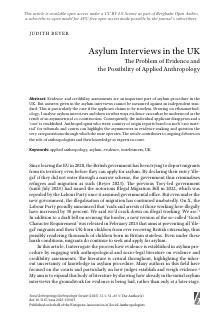
-
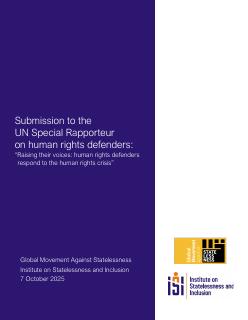
Submission to the UN Special Rapporteur on human rights defenders: “Raising their voices: human rights defenders respond to the human rights crisis”
Type of Resource: Report
Theme: General / Other
Region: Global / Other
View -
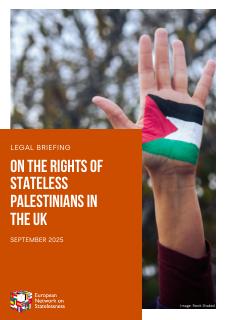
Legal Briefing on the rights of stateless Palestinians in the UK
Type of Resource: Briefing / Policy paper
Theme: Human Rights Enjoyment by Stateless People
Region: Europe
View
